Getting paid on time ensures a positive cash flow, as well as positive client relationships. Timely payment is essential to the success and sustainability of your small business. Yet, despite your effective invoicing, organized collection system and notifications, you may not get paid. What recourse do you have?
This article not only offers tips to manage collection of your invoices, but it also describes what to do if your customers are late with payments or don’t pay.
Your cash flow depends on the effective management of your invoices. Keep these tips in mind.
* Gather full customer information. Gather customers’ full contact information the moment you render a service or deliver a product. Copy their complete information directly from a formal identification or other document with a printed address. If dealing with a business, get a business card to include in the client file. Request a purchase order or, at the very least, something printed on company letterhead. Note of the company’s full legal name, its physical address, and the full name and title of the person placing the order. Have both parties sign a written agreement or service contract.
* Invoice immediately. Bill customers as soon as you deliver a product or render a service. This is preferable to doing all of your invoicing at set intervals (e.g., at month’s end). If you delay in sending your invoices, you carry your clients’ debts longer. Ensure that your invoices, contracts and statements all clearly state the amount due and the payment terms, as well as specific interest on past due accounts.
* Monitor receivables. Regularly track your receivables so that you’re aware when invoices are overdue. This allows you to take immediate action where necessary.
* Determine and organize your collections. Determine who within your business will handle collections. Ensure you keep clear and detailed notes of all customer interactions. This includes sales entries and receipts.
* Maintain an effective contact system. Be sure your customers understand that you take billing seriously and that you handle it consistently. Be prepared to deal with late payments, and communicate your policies and the consequences of past due payments. Customers must be clear how and when you will contact them if they are late. Create a phone script for interactions with, and pre-drafted letters for, non-paying customers. Be direct and consistent.
Decide the number of times you’ll try to contact a customer whose payment is late. You could, for instance, contact a client whose payment is exactly one month late, and every 14 days thereafter until payment is made. Keep detailed notes of every interaction.
If you’ve tried two or three times, without success, to receive payment, you may want to escalate matters. Document your interactions, and consider sending notifications via certified mail. If an invoice is over 90 days past due, you may wish to send a final request indicating how past due the account is and that you can no longer wait for payment. Send it via certified or registered mail, and enclose your proposal (if applicable), sales contract or sales agreement, and copies of previous invoices and notices. Allow seven or 10 days for a response, failing which you will consider legal action or a collection agency.
CAN I SUE A CUSTOMER FOR NON-PAYMENT?
To sue means to bring your problem before a judge. In Alberta, it is the Civil Division of the Provincial Court that handles general debt problems (i.e., contracts, loans, damage deposits and rent).
If you decide to sue in a civil claim (also called small claims court or small debt court), there are a number of things you should know.
* You must sue within two years from the time the debt began.
* You must be 18 years of age or older; if you are under 18, you must find an adult (referred to as a litigation representative) to accept responsibility for the lawsuit, including costs (e.g., filing fees, witness fees, interpreter fees).
* You can sue for an amount up to $50,000. If your claim exceeds $50,000, you can drop (or abandon) the extra amount or go to the Court of Queen’s Bench of Alberta to sue for the total amount.
* You cannot sue for lost wages while attending the hearing.
* You must prove that a debt exists, the amount of the debt, and whether it unpaid or only partially paid?
* Ensure that you have sufficient supporting evidence and good witnesses.
* Ensure that you have a means to collect if you win your case.
* Tempting as it may be, do not disparage or smear non-paying clients—whether on social media or elsewhere.
WHAT HAPPENS AFTER I WIN A JUDGMENT?
If you decide to proceed with a civil claim and win a judgement that says the debtor owes you money, it does not guarantee you will be paid. It is up to you to take the steps necessary to collect. Staff at the Court can provide you with the information and forms to help you do this. You may need to engage a collection agency, lawyer or paralegal.
HOW IS JUDGMENT ENFORCED?
The Court’s judgment can be enforced in one of three ways:
* garnishment of the debtor’s wages or bank accounts
* Writ of Seizure and Sale of Personal Property, in which the Court collects monies from the sale of the debtor’s property
* Writ of Seizure and Sale of Land, in which the Court helps you collect by selling or putting a lien on the debtor’s land
Business law is complicated. Consult with the Lift Legal team of corporate lawyers. We’ll work to protect your rights, explain the civil claim process and offer informed advice and counsel.
Disclaimer: The information on this blog and website is provided by Lift Legal for educational purposes only. It is intended to give readers a general understanding of the law, not to provide specific legal advice. Information contained in these pages should not be used in place of competent legal advice from a licensed, practising lawyer in Alberta. Furthermore, by using this blog and website, you understand that no lawyer-client relationship exists between you and Lift Legal.













